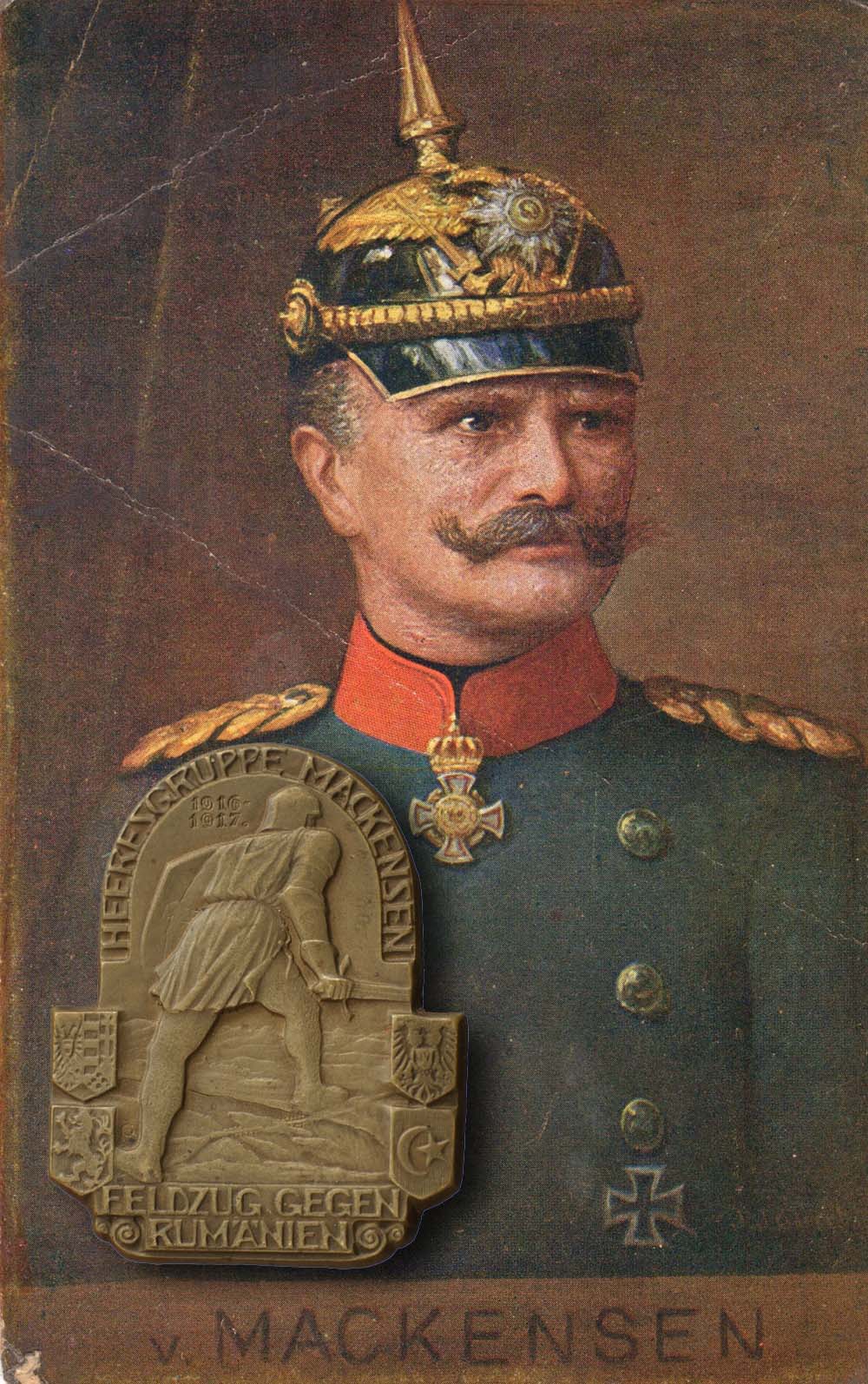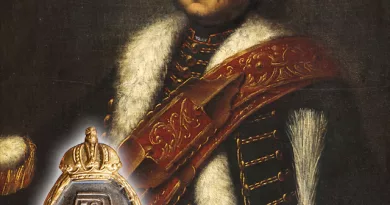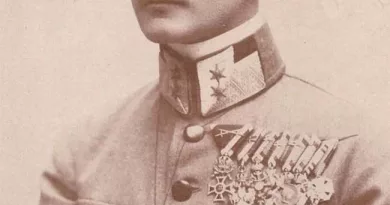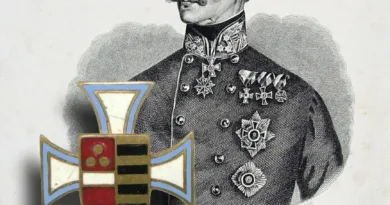Feldmarshal August von Mackensen
He was born in Saxony in 1849 and studied agriculture in Halle. He began his military career in 1869 as a one-year volunteer. He took part in the Prussian-French War of 1870-71, where he distinguished himself and was promoted to lieutenant in the reserve. His successes in the war finally led him to a military career. In 1873 he applied for professional service. He rose rapidly in the ranks and, through his extensive education, also wrote military science articles. Before the beginning of the Great War, he became a corps commander and a cavalry general.

After the outbreak of the war, he first fought as a corps commander on the German section of the Russian front. He played a significant role in the autumn 1914 victory at the Mazury Lakes. In April 1915, he was appointed commander of the newly organized German 11th Army, which was the offensive wedge during the Gorlice breakthrough. With this victory, he rose to the ranks of the most popular German generals along with Hindenburg and Ludendorff. After the Russian campaign, following the consolidation of the front, the 11th Army was transferred to the Serbian front. Here, in cooperation with the Austro-Hungarian 3rd Army and the Bulgarian 1st Army, the Serbian army was defeated. The commander of an army group of three Allied armies was Mackensen (Heeresgruppe Mackensen).

Subsequently, in a counterattack against Romania, Mackensen became the commander of the Bulgarian, Turkish and Austro-Hungarian forces (Danube Army) attacking in Muntenia. First he occupied Dobrogea and the Danube Delta. He smashed the Russian troops coming to rescue the Romanians. After crossing the Danube, the retreat route of Romanian troops to Moldavia was cut off, making Bucharest unprotected. The above badge symbolically depicts the change of shore of the Danube Army at Sistov. Meanwhile, the German 9th Army (Falkenhayn) and the Austro-Hungarian 1st Army (Arz) also crossed the Carpathian passes and occupied most of Muntenia. In February 1917, Romania capitulated. The remaining Moldavian territories were occupied by Russian troops. In the Carpathians, Romanian trenches were taken over by Russian troops. For this victory, Mackensen received the Grand Cross of the Iron Cross Award. For the rest of the war, he served as the military governor of Romania.

At the end of 1918, in the midst of a general collapse, Mackensen offered the Hungarian government to stop the Romanian troops preparing to re-invade Transylvania. The Hungarian government, which relied on the promises of the ceasefire and was already anti-war, did not demand it. This turned out a big mistake since Entente did not take the ceasefire conditions serious. Instead, Mackensen was arrested and interned in Budapest and then handed over to the Entente. He was transported by an English barge to Thessaloniki, from where he was returned to Germany in December 1919.




